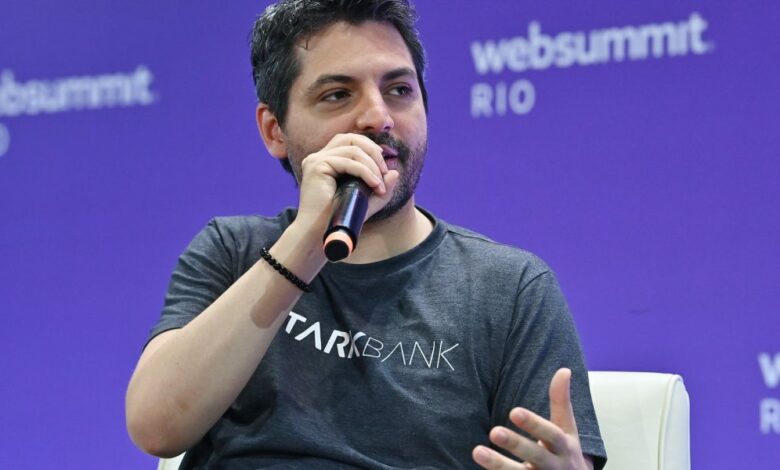Jeff Bezos-backed Brazil fintech Stark Bank doesn’t ‘believe in remote work’


Stark Bank, one of the few Latin America startups to receive funding from Jeff Bezos’ family office, is generating profits from its business of helping companies handle payments, while leaving cash raised from its funding rounds nearly untouched.
The Sao Paulo-based company handled 155 billion reais ($31 billion) of payments in 2023, a three-fold jump from a year earlier, while more than doubling net income to 71.5 million reais, founder Rafael Stark said in an interview, disclosing the closely held firm’s 2023 financial results for the first time.
The startup, which assists companies in processing payments, invoices and receivables, is focused on gaining domestic market share from large corporate banks, said Stark, who owns 38% of the firm. Its list of 600 or so clients includes Gol Linhas Aereas Inteligentes SA, Localiza Rent a Car SA, Cia Ultragaz SA and fellow startups Loft and QuintoAndar.
“While a lot of tech companies are trying to stop losing money we’re posting high levels of profitability,” Stark, 35, said. “There’s no need to keep raising money and diluting my stake. It’s better to grow and create much more value further down the road.”
Series B
In its Series B round in 2022, Stark raised $45 million from investors including Bezos Expeditions, the Amazon.com Inc. founder’s family office, and Ribbit Capital at a valuation of $250 million. Earlier investors included Fabio Igel of Monashees Capital, Stewart Butterfield of Slack Technologies Inc., Brian Armstrong of Coinbase Global Inc. and Arash Ferdowsi of Dropbox Inc.
Stark said the firm’s market share in various metrics remains small among corporate banks in Brazil, showing potential for growth. While Stark doesn’t have a formal banking license, it’s able to lend from its own cash on hand, and is planning to spend more on marketing in 2024 after years of keeping a low profile to build the product.
Stark said the company allows its clients to automate time-consuming tasks like billing and payroll.
“When a company manages a lot of transactions they can misplace information, and if they’re not organized they can lose a lot of money,” he said. “We allow the company to be more efficient. That means sometimes a team of 30 people that do manual tasks and commit human errors can be reduced to about five people to do the same work.”
About 30% of its nearly 90 employees are engineers.
Stark’s focus on helping fellow tech companies and the ability to customize solutions for clients is an advantage compared with large Brazilian banks, said Bruno Diniz, a managing partner at consulting firm Spiralem, which works with fintechs.
‘Interesting Niche’
“They found a very interesting niche,” Diniz said. “They’re very lean in their tech stack, which allows them to provide this custom type of service for the big players. And once they create a customer solution for one player, they replicate that and start offering to all the other clients.”
Born Rafael Castro de Matos in the central state of Goias, Stark studied engineering in Brazil and later received a scholarship in the US, where he attended California Polytechnic University and Stanford University. He founded his firm in 2018 and legally changed his surname to Stark on all official documents.
In drawing parallels to digital bank Nu Holdings Ltd.’s growth path, he anticipates a potential initial public offering about a decade after founding — or close to 2029 — and is focused for now on Brazil and Sao Paulo, where the bulk of the country’s biggest firms are based.
One glaring difference at Stark from other tech startups is that employees are expected to be in the office five days a week. To sweeten the deal, he’s built out the top floor of the building to soon house a bar, restaurant and meeting areas for employees. Stark also says he pays above market wages while offering a stipend for those living close to the office.
“I don’t believe in remote work,” he said. “We need people who are aligned with what we’re building. So someone who is aligned with their own comfort zone and remote work isn’t aligned with the values of Stark. To do big things, you need to leave your comfort zone.”
Source link




